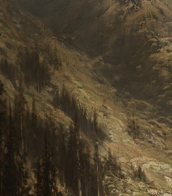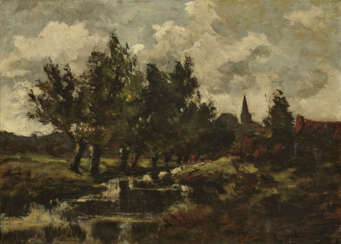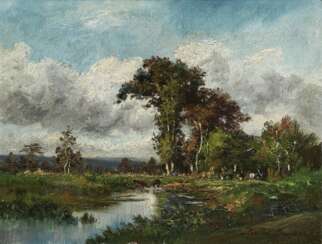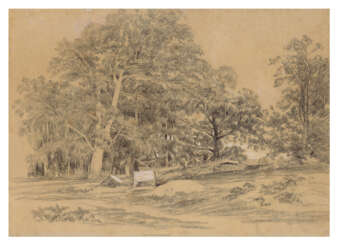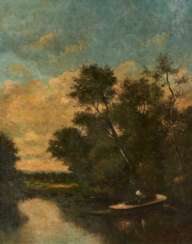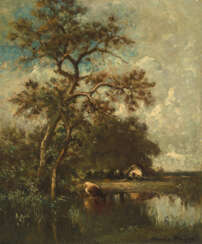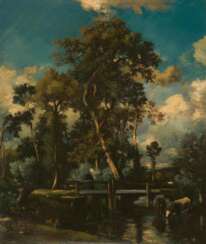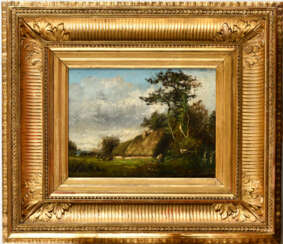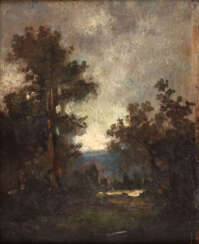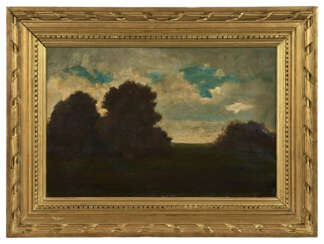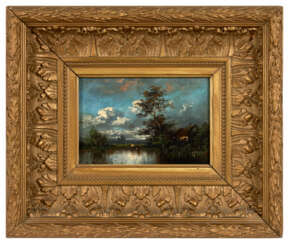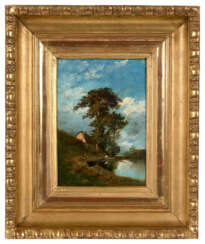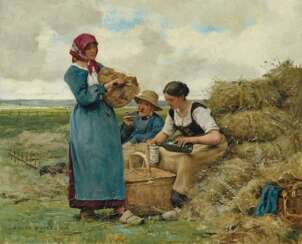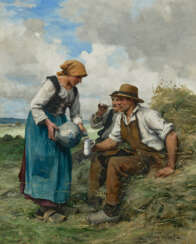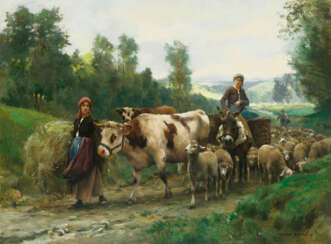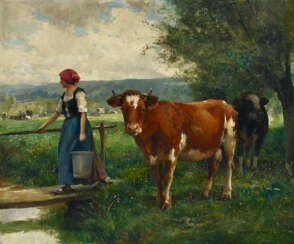жюль дюпре
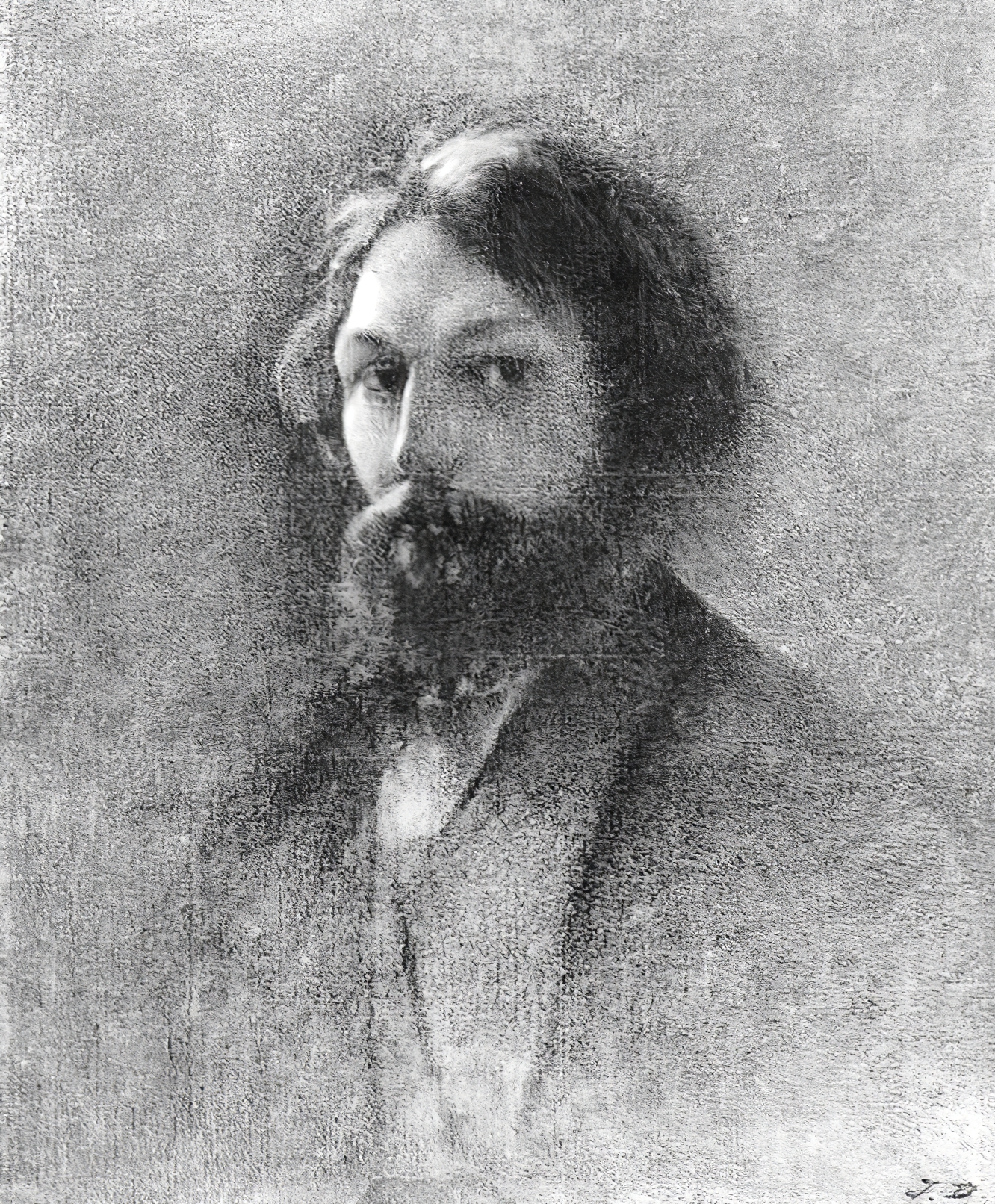
Jules Louis Dupré was a French painter, one of the chief members of the Barbizon school of landscape painters. If Corot stands for the lyric and Rousseau for the epic aspect of the poetry of nature, Dupré is the exponent of its tragic and dramatic aspects.
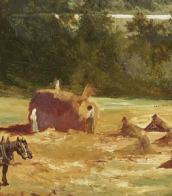

Jules Louis Dupré was a French painter, one of the chief members of the Barbizon school of landscape painters. If Corot stands for the lyric and Rousseau for the epic aspect of the poetry of nature, Dupré is the exponent of its tragic and dramatic aspects.
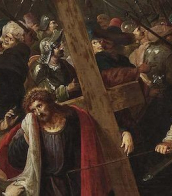

Jules Louis Dupré was a French painter, one of the chief members of the Barbizon school of landscape painters. If Corot stands for the lyric and Rousseau for the epic aspect of the poetry of nature, Dupré is the exponent of its tragic and dramatic aspects.
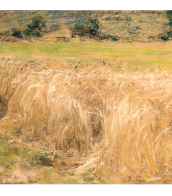

Jules Louis Dupré was a French painter, one of the chief members of the Barbizon school of landscape painters. If Corot stands for the lyric and Rousseau for the epic aspect of the poetry of nature, Dupré is the exponent of its tragic and dramatic aspects.
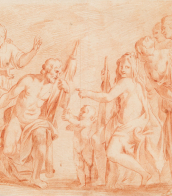

Jules Louis Dupré was a French painter, one of the chief members of the Barbizon school of landscape painters. If Corot stands for the lyric and Rousseau for the epic aspect of the poetry of nature, Dupré is the exponent of its tragic and dramatic aspects.
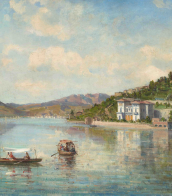

Jules Louis Dupré was a French painter, one of the chief members of the Barbizon school of landscape painters. If Corot stands for the lyric and Rousseau for the epic aspect of the poetry of nature, Dupré is the exponent of its tragic and dramatic aspects.


Jules Louis Dupré was a French painter, one of the chief members of the Barbizon school of landscape painters. If Corot stands for the lyric and Rousseau for the epic aspect of the poetry of nature, Dupré is the exponent of its tragic and dramatic aspects.
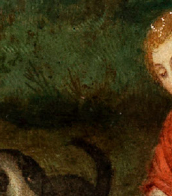

Jules Louis Dupré was a French painter, one of the chief members of the Barbizon school of landscape painters. If Corot stands for the lyric and Rousseau for the epic aspect of the poetry of nature, Dupré is the exponent of its tragic and dramatic aspects.
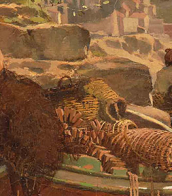

Jules Louis Dupré was a French painter, one of the chief members of the Barbizon school of landscape painters. If Corot stands for the lyric and Rousseau for the epic aspect of the poetry of nature, Dupré is the exponent of its tragic and dramatic aspects.
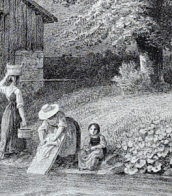

Jules Louis Dupré was a French painter, one of the chief members of the Barbizon school of landscape painters. If Corot stands for the lyric and Rousseau for the epic aspect of the poetry of nature, Dupré is the exponent of its tragic and dramatic aspects.
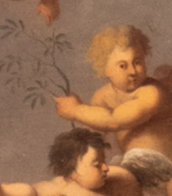

Jules Louis Dupré was a French painter, one of the chief members of the Barbizon school of landscape painters. If Corot stands for the lyric and Rousseau for the epic aspect of the poetry of nature, Dupré is the exponent of its tragic and dramatic aspects.
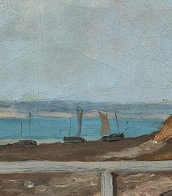

Jules Louis Dupré was a French painter, one of the chief members of the Barbizon school of landscape painters. If Corot stands for the lyric and Rousseau for the epic aspect of the poetry of nature, Dupré is the exponent of its tragic and dramatic aspects.
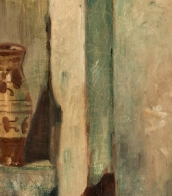

Jules Louis Dupré was a French painter, one of the chief members of the Barbizon school of landscape painters. If Corot stands for the lyric and Rousseau for the epic aspect of the poetry of nature, Dupré is the exponent of its tragic and dramatic aspects.

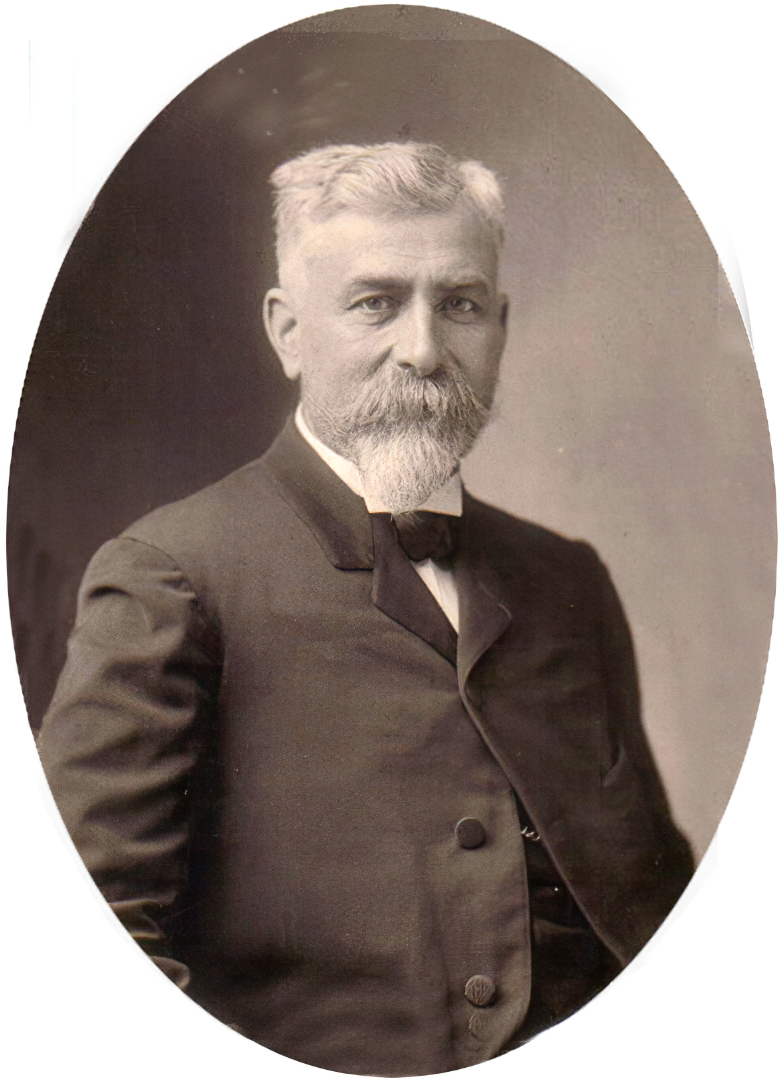
Julien Dupré, a distinguished French artist, emerged as a pivotal figure in the realm of painting, celebrated for his vivid and heartfelt portrayals of peasant life. Born into a family of jewelers in 1851, Dupré's artistic journey commenced in an unexpected turn of events when the Franco-Prussian war led him to pursue art, eventually studying at the École des Beaux-Arts under renowned teachers like Isidore Pils and Henri Lehmann.
Julien Dupré's oeuvre is renowned for its realistic depiction of rural scenes, particularly in Normandy and Brittany, capturing the essence of peasant life with a blend of romanticism and realism. His commitment to depicting the rustic life earned him prestigious accolades, including a gold medal at the Exposition Universelle in 1889 and the esteemed Legion of Honour in 1892.
Among his notable works are "The Hay Harvest" at the Chimei Museum, "Haying Scene" at the St. Louis Art Museum, and "The Haymakers" at the Worcester Art Museum. These paintings not only illustrate Julien Dupré's masterful depiction of rural life but also resonate with art enthusiasts and collectors worldwide for their historical and cultural significance.
For collectors and art aficionados, Julien Dupré's paintings are a testament to a bygone era, offering a window into the pastoral life of 19th-century France. His works are not merely artistic endeavors but historical narratives woven onto canvas, celebrating the unvarnished beauty of the countryside and its inhabitants.
If you're captivated by Julien Dupré's artistic legacy and wish to stay informed about upcoming sales and auction events featuring his works, consider signing up for updates. This subscription is your gateway to exploring the enchanting world of Dupré, ensuring you're abreast of the latest opportunities to own a piece of French art history.
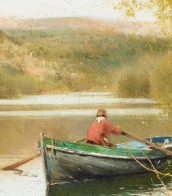

Julien Dupré, a distinguished French artist, emerged as a pivotal figure in the realm of painting, celebrated for his vivid and heartfelt portrayals of peasant life. Born into a family of jewelers in 1851, Dupré's artistic journey commenced in an unexpected turn of events when the Franco-Prussian war led him to pursue art, eventually studying at the École des Beaux-Arts under renowned teachers like Isidore Pils and Henri Lehmann.
Julien Dupré's oeuvre is renowned for its realistic depiction of rural scenes, particularly in Normandy and Brittany, capturing the essence of peasant life with a blend of romanticism and realism. His commitment to depicting the rustic life earned him prestigious accolades, including a gold medal at the Exposition Universelle in 1889 and the esteemed Legion of Honour in 1892.
Among his notable works are "The Hay Harvest" at the Chimei Museum, "Haying Scene" at the St. Louis Art Museum, and "The Haymakers" at the Worcester Art Museum. These paintings not only illustrate Julien Dupré's masterful depiction of rural life but also resonate with art enthusiasts and collectors worldwide for their historical and cultural significance.
For collectors and art aficionados, Julien Dupré's paintings are a testament to a bygone era, offering a window into the pastoral life of 19th-century France. His works are not merely artistic endeavors but historical narratives woven onto canvas, celebrating the unvarnished beauty of the countryside and its inhabitants.
If you're captivated by Julien Dupré's artistic legacy and wish to stay informed about upcoming sales and auction events featuring his works, consider signing up for updates. This subscription is your gateway to exploring the enchanting world of Dupré, ensuring you're abreast of the latest opportunities to own a piece of French art history.
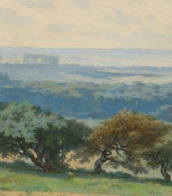

Julien Dupré, a distinguished French artist, emerged as a pivotal figure in the realm of painting, celebrated for his vivid and heartfelt portrayals of peasant life. Born into a family of jewelers in 1851, Dupré's artistic journey commenced in an unexpected turn of events when the Franco-Prussian war led him to pursue art, eventually studying at the École des Beaux-Arts under renowned teachers like Isidore Pils and Henri Lehmann.
Julien Dupré's oeuvre is renowned for its realistic depiction of rural scenes, particularly in Normandy and Brittany, capturing the essence of peasant life with a blend of romanticism and realism. His commitment to depicting the rustic life earned him prestigious accolades, including a gold medal at the Exposition Universelle in 1889 and the esteemed Legion of Honour in 1892.
Among his notable works are "The Hay Harvest" at the Chimei Museum, "Haying Scene" at the St. Louis Art Museum, and "The Haymakers" at the Worcester Art Museum. These paintings not only illustrate Julien Dupré's masterful depiction of rural life but also resonate with art enthusiasts and collectors worldwide for their historical and cultural significance.
For collectors and art aficionados, Julien Dupré's paintings are a testament to a bygone era, offering a window into the pastoral life of 19th-century France. His works are not merely artistic endeavors but historical narratives woven onto canvas, celebrating the unvarnished beauty of the countryside and its inhabitants.
If you're captivated by Julien Dupré's artistic legacy and wish to stay informed about upcoming sales and auction events featuring his works, consider signing up for updates. This subscription is your gateway to exploring the enchanting world of Dupré, ensuring you're abreast of the latest opportunities to own a piece of French art history.
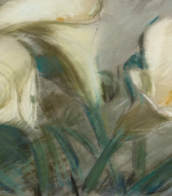

Julien Dupré, a distinguished French artist, emerged as a pivotal figure in the realm of painting, celebrated for his vivid and heartfelt portrayals of peasant life. Born into a family of jewelers in 1851, Dupré's artistic journey commenced in an unexpected turn of events when the Franco-Prussian war led him to pursue art, eventually studying at the École des Beaux-Arts under renowned teachers like Isidore Pils and Henri Lehmann.
Julien Dupré's oeuvre is renowned for its realistic depiction of rural scenes, particularly in Normandy and Brittany, capturing the essence of peasant life with a blend of romanticism and realism. His commitment to depicting the rustic life earned him prestigious accolades, including a gold medal at the Exposition Universelle in 1889 and the esteemed Legion of Honour in 1892.
Among his notable works are "The Hay Harvest" at the Chimei Museum, "Haying Scene" at the St. Louis Art Museum, and "The Haymakers" at the Worcester Art Museum. These paintings not only illustrate Julien Dupré's masterful depiction of rural life but also resonate with art enthusiasts and collectors worldwide for their historical and cultural significance.
For collectors and art aficionados, Julien Dupré's paintings are a testament to a bygone era, offering a window into the pastoral life of 19th-century France. His works are not merely artistic endeavors but historical narratives woven onto canvas, celebrating the unvarnished beauty of the countryside and its inhabitants.
If you're captivated by Julien Dupré's artistic legacy and wish to stay informed about upcoming sales and auction events featuring his works, consider signing up for updates. This subscription is your gateway to exploring the enchanting world of Dupré, ensuring you're abreast of the latest opportunities to own a piece of French art history.
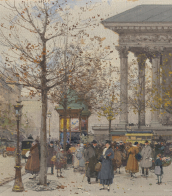

Julien Dupré, a distinguished French artist, emerged as a pivotal figure in the realm of painting, celebrated for his vivid and heartfelt portrayals of peasant life. Born into a family of jewelers in 1851, Dupré's artistic journey commenced in an unexpected turn of events when the Franco-Prussian war led him to pursue art, eventually studying at the École des Beaux-Arts under renowned teachers like Isidore Pils and Henri Lehmann.
Julien Dupré's oeuvre is renowned for its realistic depiction of rural scenes, particularly in Normandy and Brittany, capturing the essence of peasant life with a blend of romanticism and realism. His commitment to depicting the rustic life earned him prestigious accolades, including a gold medal at the Exposition Universelle in 1889 and the esteemed Legion of Honour in 1892.
Among his notable works are "The Hay Harvest" at the Chimei Museum, "Haying Scene" at the St. Louis Art Museum, and "The Haymakers" at the Worcester Art Museum. These paintings not only illustrate Julien Dupré's masterful depiction of rural life but also resonate with art enthusiasts and collectors worldwide for their historical and cultural significance.
For collectors and art aficionados, Julien Dupré's paintings are a testament to a bygone era, offering a window into the pastoral life of 19th-century France. His works are not merely artistic endeavors but historical narratives woven onto canvas, celebrating the unvarnished beauty of the countryside and its inhabitants.
If you're captivated by Julien Dupré's artistic legacy and wish to stay informed about upcoming sales and auction events featuring his works, consider signing up for updates. This subscription is your gateway to exploring the enchanting world of Dupré, ensuring you're abreast of the latest opportunities to own a piece of French art history.
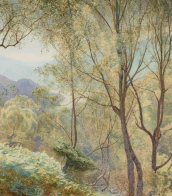

Julien Dupré, a distinguished French artist, emerged as a pivotal figure in the realm of painting, celebrated for his vivid and heartfelt portrayals of peasant life. Born into a family of jewelers in 1851, Dupré's artistic journey commenced in an unexpected turn of events when the Franco-Prussian war led him to pursue art, eventually studying at the École des Beaux-Arts under renowned teachers like Isidore Pils and Henri Lehmann.
Julien Dupré's oeuvre is renowned for its realistic depiction of rural scenes, particularly in Normandy and Brittany, capturing the essence of peasant life with a blend of romanticism and realism. His commitment to depicting the rustic life earned him prestigious accolades, including a gold medal at the Exposition Universelle in 1889 and the esteemed Legion of Honour in 1892.
Among his notable works are "The Hay Harvest" at the Chimei Museum, "Haying Scene" at the St. Louis Art Museum, and "The Haymakers" at the Worcester Art Museum. These paintings not only illustrate Julien Dupré's masterful depiction of rural life but also resonate with art enthusiasts and collectors worldwide for their historical and cultural significance.
For collectors and art aficionados, Julien Dupré's paintings are a testament to a bygone era, offering a window into the pastoral life of 19th-century France. His works are not merely artistic endeavors but historical narratives woven onto canvas, celebrating the unvarnished beauty of the countryside and its inhabitants.
If you're captivated by Julien Dupré's artistic legacy and wish to stay informed about upcoming sales and auction events featuring his works, consider signing up for updates. This subscription is your gateway to exploring the enchanting world of Dupré, ensuring you're abreast of the latest opportunities to own a piece of French art history.


Julien Dupré, a distinguished French artist, emerged as a pivotal figure in the realm of painting, celebrated for his vivid and heartfelt portrayals of peasant life. Born into a family of jewelers in 1851, Dupré's artistic journey commenced in an unexpected turn of events when the Franco-Prussian war led him to pursue art, eventually studying at the École des Beaux-Arts under renowned teachers like Isidore Pils and Henri Lehmann.
Julien Dupré's oeuvre is renowned for its realistic depiction of rural scenes, particularly in Normandy and Brittany, capturing the essence of peasant life with a blend of romanticism and realism. His commitment to depicting the rustic life earned him prestigious accolades, including a gold medal at the Exposition Universelle in 1889 and the esteemed Legion of Honour in 1892.
Among his notable works are "The Hay Harvest" at the Chimei Museum, "Haying Scene" at the St. Louis Art Museum, and "The Haymakers" at the Worcester Art Museum. These paintings not only illustrate Julien Dupré's masterful depiction of rural life but also resonate with art enthusiasts and collectors worldwide for their historical and cultural significance.
For collectors and art aficionados, Julien Dupré's paintings are a testament to a bygone era, offering a window into the pastoral life of 19th-century France. His works are not merely artistic endeavors but historical narratives woven onto canvas, celebrating the unvarnished beauty of the countryside and its inhabitants.
If you're captivated by Julien Dupré's artistic legacy and wish to stay informed about upcoming sales and auction events featuring his works, consider signing up for updates. This subscription is your gateway to exploring the enchanting world of Dupré, ensuring you're abreast of the latest opportunities to own a piece of French art history.
